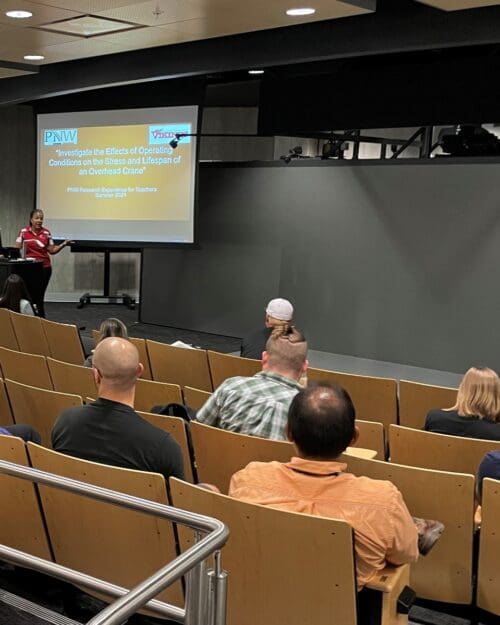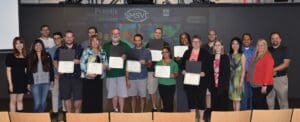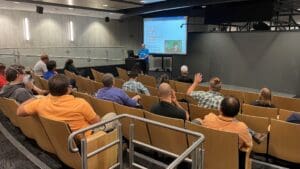CIVS Celebrates the Success of NSF Summer Research Experience for Teachers

CIVS concluded a 6-week National Science Foundation (NSF) Research Experience for Teachers (RET) summer program with 11 High School and Community College Teachers from Northwest Indiana and Illinois on July. 23rd. The teachers completed various research projects and developed a curriculum for their students to use during the 2021-2022 school year. Through the program, the teachers learned and improved their skills using simulation and visualization tools for research, conducting literature reviews, relating real-world problems to research and teaching in the classroom, and communicating research problems, ideas, and results. The teachers said that they were very impressed with the CIVS staff, students, and environment. They are also so excited about how much they learned in 6-weeks, and their achievements. The participants are looking forward to incorporating their summer research into their classrooms this year to provide more excitement surrounding STEM.
CIVS will continue working with the teachers throughout the school year, including hosting events with speakers from the steel industry, hosting field trips for students, and helping teachers implement their lessons in the classroom. Specifically, four teachers who developed interactive safety training will develop classroom lessons for Manufacturing, Construction, Welding, Computer Programming, and Quantitative Reasoning; three teachers who finished research for Overhead Crane Stress and Lifespan using FEA will develop lessons for Intro to Engineering and Project Lead The Way (PLTW); another three teachers worked on research with CFD for blast furnace will develop classroom lessons for Chemistry, Environmental Science, and Physics; the other one teacher who researched optimization of reheating furnace plans to develop classroom lessons in statistics for his students.
This is the first year of the 3-year NSF RET project. CIVS will host summer programs again in 2022 and 2023 to enhance STEM education and stimulate high school and community college students’ STEM interest through partnerships with participant teachers, university mentors, and industry engineers using simulation and visualization technologies for innovative industrial solutions and model-based manufacturing.

